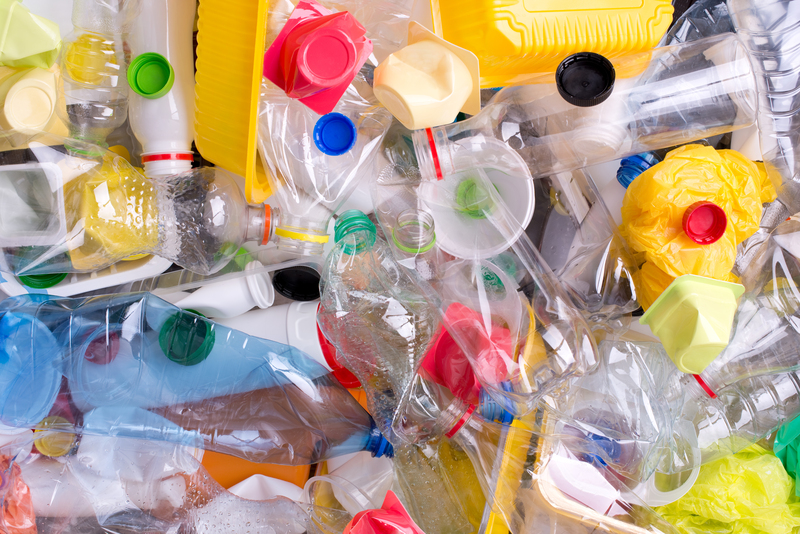Step into Eco-Friendly Living by Curtailing Plastic Use
Are you ready to embark on a journey toward a greener, more sustainable lifestyle? Stepping into eco-friendly living by curtailing plastic use is one of the most effective actions you can take today. Plastic pollution is a growing concern worldwide, threatening our environment, wildlife, and human health. In this comprehensive article, we'll explore why reducing plastic is vital, how you can minimize its use in your everyday life, and actionable solutions for lasting change.
Understanding the Impact of Plastic on the Environment
Plastic, though convenient and inexpensive, comes with an enormous ecological price tag. Every year, millions of tons of plastic waste end up in landfills, rivers, and oceans. This pollution disrupts ecosystems, harms wildlife, and contributes to the growing climate crisis. When you choose to cut back on plastic products, you're not only protecting nature but also fostering a healthier community for all.
Key Facts About Plastic Pollution
- Every minute, nearly one million plastic bottles are purchased worldwide.
- Up to 8 million tons of plastic enter our oceans yearly.
- Microplastics have been found in drinking water, seafood, and even the air we breathe.
- Plastic production is responsible for more than 3% of global greenhouse gas emissions.
- Only ~9% of plastic waste is recycled globally.

Why Step into an Eco-Friendly Lifestyle by Reducing Plastic Use?
Making a conscious effort to reduce plastic is about more than just saving the planet--it's about safeguarding your own health and improving quality of life.
- Protects wildlife: Animals often mistake plastic for food, leading to injury or death.
- Improves health: Cutting plastic reduces exposure to hazardous chemicals like BPA.
- Fights climate change: Lower demand for plastic means less pollution and energy use.
- Saves money: Adopting sustainable, reusable products helps you save in the long run.
Simple Steps to Curtail Plastic Use and Embrace Greener Living
If you're wondering how to reduce plastic waste in daily life, start with these easy, actionable steps that make a meaningful impact:
1. Invest in Reusable Products
- Switch to reusable shopping bags instead of single-use plastic bags.
- Carry a stainless steel or glass water bottle to avoid disposable plastic bottles.
- Use metal, glass, or bamboo straws rather than single-use plastic straws.
- Choose reusable food containers over plastic wrap and disposable containers.
2. Rethink Your Grocery Shopping Habits
- Shop at bulk stores where you can bring your own containers.
- Select fresh produce instead of pre-packaged fruits and vegetables.
- Buy products with minimal or compostable packaging whenever possible.
3. Choose Eco-Friendly Alternatives
- Opt for bar soap instead of liquid soap in plastic dispensers.
- Pick bamboo toothbrushes over plastic ones.
- Replace plastic razors with stainless steel safety razors.
- Try cloth or mesh produce bags for fruits and vegetables.
4. Make Conscious Choices in Daily Life
- Say no to plastic cutlery and plates; carry your own set of eco-friendly utensils.
- Avoid microplastics by choosing clothes, cosmetics, and products without synthetic fibers or microbeads.
- Support local businesses that prioritize sustainable packaging.
Creative Ways to Cut Plastic Use in Different Rooms
Kitchen
- Use beeswax wraps instead of plastic wrap for food storage.
- Compost food scraps to reduce the need for garbage bags.
- Buy pantry staples in glass jars or paper packaging instead of plastic.
Bathroom
- Choose refillable shampoo and conditioner bottles or shampoo bars.
- Use stainless steel safety razors and avoid plastic ones.
- Opt for toilet paper wrapped in paper instead of plastic.
On-the-Go
- Carry a collapsible cup for beverages when traveling.
- Bring your own containers for takeaways and leftovers.
- Avoid pre-packaged snacks by making your own at home.
The Power of Eco-Friendly Swaps: Alternatives to Everyday Plastics
Choosing the right alternatives is key to curtailing your plastic footprint. Here are some top swaps for common household plastics:
- Plastic wrap -> Beeswax, silicone, or cloth wraps
- PET water bottles -> Stainless steel/glass water bottles
- Plastic bags -> Cotton tote bags or baskets
- Disposable coffee cups -> Reusable travel mugs
- Plastic toothbrushes -> Bamboo toothbrushes
- Plastic straws -> Metal, bamboo, or pasta straws
Benefits of Reducing Plastic for Eco-Friendly Living
- Environmental preservation: Less plastic means healthier ecosystems, oceans, and wildlife.
- Personal health boost: Fewer microplastics and harmful chemicals in your body.
- Cost savings: Reusable items save you money in the long run.
- Sets a positive example and encourages others to adopt eco-conscious habits.
Frequently Asked Questions About Curtailing Plastic Usage
Is it possible to eliminate all plastic from my lifestyle?
While completely eliminating plastic may not be practical for everyone, you can significantly reduce plastic waste by making mindful choices and substituting when possible.
What are the easiest habits to change first?
Start with single-use plastics like bags, bottles, and straws. Then, switch to reusable shopping bags and water bottles before tackling more challenging areas like food packaging.
Do alternative products biodegrade more quickly?
Many eco-friendly alternatives--like bamboo, plant-based plastics, and beeswax wraps--are designed to biodegrade or be compostable in domestic or industrial composting conditions, reducing landfill waste.
How can communities amplify the impact of reduced plastic usage?
Community action is powerful:
- Organize clean-up drives in neighborhoods and parks.
- Host educational workshops on sustainable living and recycling.
- Lobby local governments for plastic bans and better waste management policies.
- Support and promote local, zero-waste businesses.
Overcoming Common Challenges in Reducing Plastic Use
Switching to an eco-friendly, plastic-reduced lifestyle can feel challenging, especially in a world designed for convenience. Here's how to stay on track:
- Plan ahead: Pack reusable items (bags, bottles, cups) when you leave home.
- Research bulk and refill stores in your area for groceries and toiletries.
- Seek out like-minded communities (online or in-person) for support and new ideas.
- Remember: Progress, not perfection. Every small change counts.
Expanding Your Impact Beyond the Home
- Advocate for change in your workplace or school by introducing recycling programs or suggesting plastic-free initiatives.
- Educate friends and family about the benefits of curtailing plastic use.
- Choose brands committed to sustainability and ethical sourcing.
- Support legislation that aims to reduce plastic production and improve recycling infrastructure.
Tools and Resources for a Plastic-Free Lifestyle
- Zero-waste blogs and communities (example: Zero Waste Home, Plastic Free July).
- Apps to track plastic usage or find zero-waste stores (e.g., My Little Plastic Footprint).
- Reusable starter kits with bottles, bags, containers, and utensils.
- DIY guides for making your own cleaning and beauty products plastic-free.

Conclusion: Eco-Friendly Living Starts with Simple Choices
Stepping into eco-friendly living by curtailing plastic use is a rewarding process that benefits the planet, your health, and your wallet. By making mindful choices--swapping disposables for reusables, choosing compostable options, and supporting sustainable businesses--you'll be part of a growing movement for a cleaner, greener future.
Start today with one small change. Every plastic bag refused, every reusable bottle carried, and every friend inspired gets us closer to a world free of plastic pollution. Together, we can make a lasting difference--one step at a time.
Your Next Steps to a Plastic-Lite Life
- Audit your home for single-use plastics you can swap out.
- Share your journey and inspire your community.
- Keep learning about new innovations in sustainable living.
- Commit to making eco-friendly living a core part of your everyday routine.
Together, let's step into a more sustainable world by consciously curtailing plastic use--starting now!